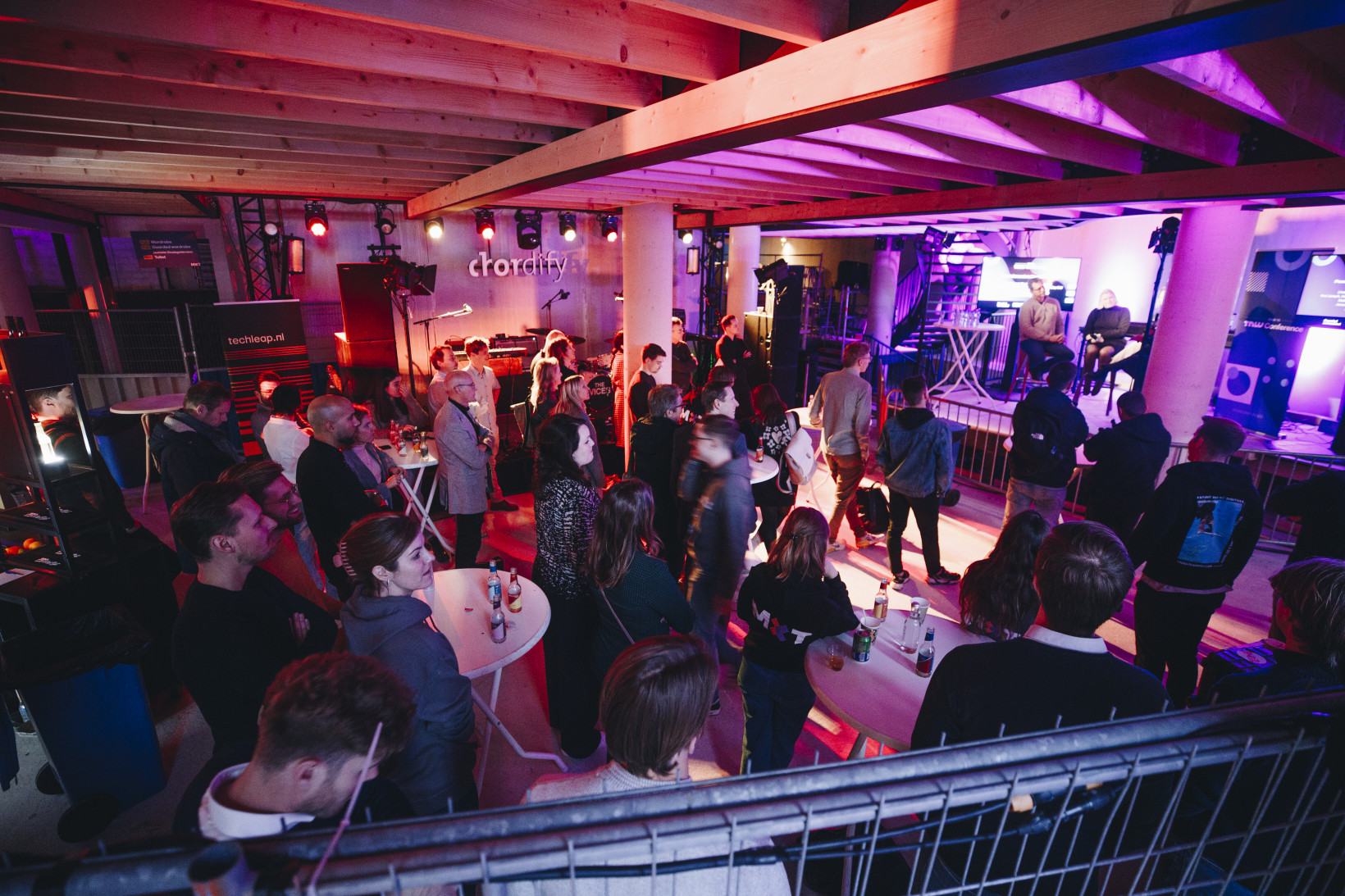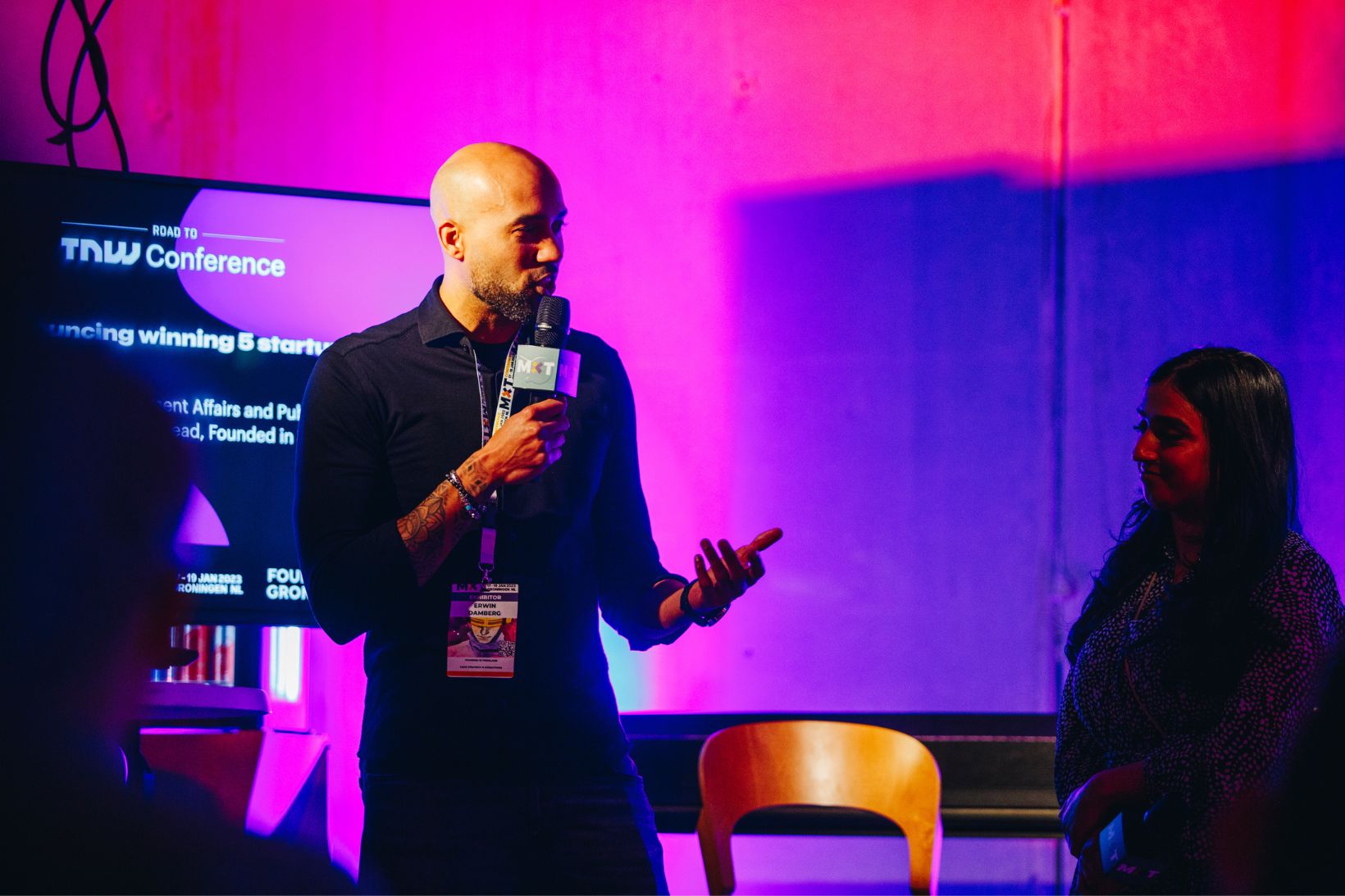The road to TNW Conference 2023 has started! With only five months to go until Europe’s leading tech festival, TNW is touring several up-and-coming tech hubs across the Netherlands to uncover the best of Dutch tech ahead of its the flagship conference in June.
First stop? Groningen. On Thursday, TNW’s event took place during the MXT 2023, in collaboration with Founded in Groningen and Founded in Friesland. This brought together startups, investors, corporates, and municipality representatives who shared how Dutch companies are enabling what’s next in tech in the Netherlands’ northern regions: Groningen, Friesland, and Drenthe.

Among Dutch startup tech hubs, the North stands out due to its fast growth, with the three regions being home to more than 330 startups that generate over 5,000 jobs. Since 2018, Groningen has seen a 12% annual growth in the number of startups, followed by Friesland at 8%, and Drenthe at 4%.
“If you compare the current startup ecosystem in the North to ten years ago it’s completely different, especially in respect to collaboration. Startups, academia, and investors are now working closely together,” Niek Huizenga, Investor at G-Force Capital, said during the event. “Yet, we have to move forward faster and adopt a growth mentality to be even more competitive.”
“The North is ahead of the other regions in the fields that matter the most, such as energy solutions and agrifood — an advantage that we should be prouder of and communicate more,” Anne-Wil Lucas, Ecosystem Partner at NOM, added.

The potential of the northern Netherlands to become one of the most attractive hubs in the country is also highlighted by the innovativeness of the five startups selected to represent the region in the TNW Conference 2023. These are:
Enatom (Groningen)
After almost ten years of collaboration with the University Medical Center Groningen (UMCG), Enatom has developed a next-gen anatomy app for the medical education sector.
Using pointcloud techniques and anatomical preparations provided by the UMCG, the app offers a realistic 3D visualization of the human body that can be used in computers, tablets, and VR/AR glasses. Within the app, anatomical preparations can be studied all the way around, while it’s also possible to annotate and create notes on the 3D models.
This way, the Enatom app can be used by both teachers and students, facilitating flexible access to accurate knowledge in low-resource settings and releasing the pressure on the educational healthcare system.
As for Nuwa’s participation in the TNW conference, Tuinier believes that it’ll not only provide the company with a strong network, but also further attract interest and investment in the northern Netherlands.
HIHAHO (Assen)
The company has developed an interactive video platform that’s all about engagement. Instead of offering a set, linear tool, the platform allows the user to be in charge.
According to HIHAHO’s CEO and owner Mark Visser, the platform’s competitive advantage is the way its technology is built, making them the “only ‘intel inside’-like solution in online interactive video worldwide.”
“Our interactive layer technology is synchronized with all major online video players and video platforms. On the layers and therefore in the videos, you can create more than 20 different types of interactions, among which the possibility to integrate existing web applications like webshops for merchandise, e-learning tests, etc,” he added.
Here’s how the video platform works:
HIHAHO now has a world-wide customer base of early adopters, and aims to become a leader in verticals such as entertainment, learning, marketing, and public information.
The team expects the conference to help attract further interest from potential partners and investors, Visser told TNW.
SusPhos (Leeuwarden)
SusPhos is using chemistry to create a better world. Specifically, the startup upcycles phosphate-rich waste streams to generate high-quality alternatives that can replace current fossil-sourced products — all in a waste-free process.
The company’s patented technology is compatible with various waste streams including agriculture, communal, and the food and beverage industry. Its first products will be flame retardants and specialty fertilizers.
In addition to phosphate products, SusPhos produces recycled coagulants along with other chemicals, while it’s currently preparing its first full-size plant.
Aeroscan (Leeuwarden)
This startup aims to disrupt the real estate inspection and maintenance industry. Using data collected from drones, Aeroscan produces 3D renderings of buildings. Customers can make use of a dedicated web-based application to gain access to these insights.
According to Mark Nikolai, founder and Technical Director of the company, the technology has three main points of impact: it reduces the time needed for experts to generate maintenance reports, it decreases the logistical footprint by allowing digital sharing of 3D visualizations, and, as a result, it lowers the overall cost of real estate ownership.
Aeroscan’s competitive advantage lies in “the combination of in-house competencies,” Nikolai told TNW. “We control the data quality (input), develop our own custom machine learning models for data analysis and deliver an end-user centric web application.”